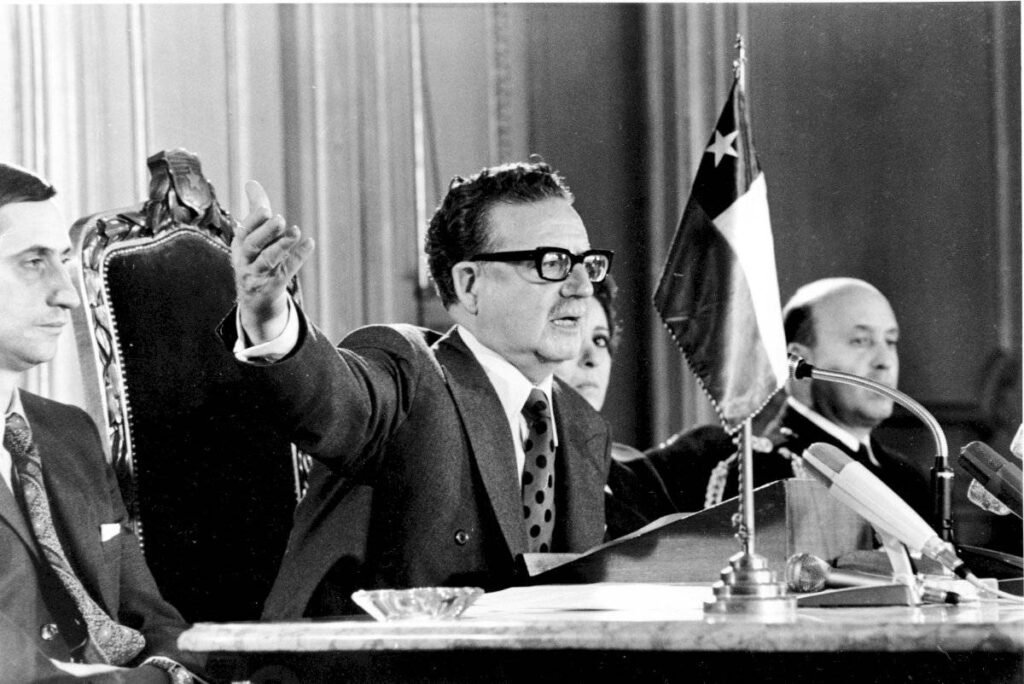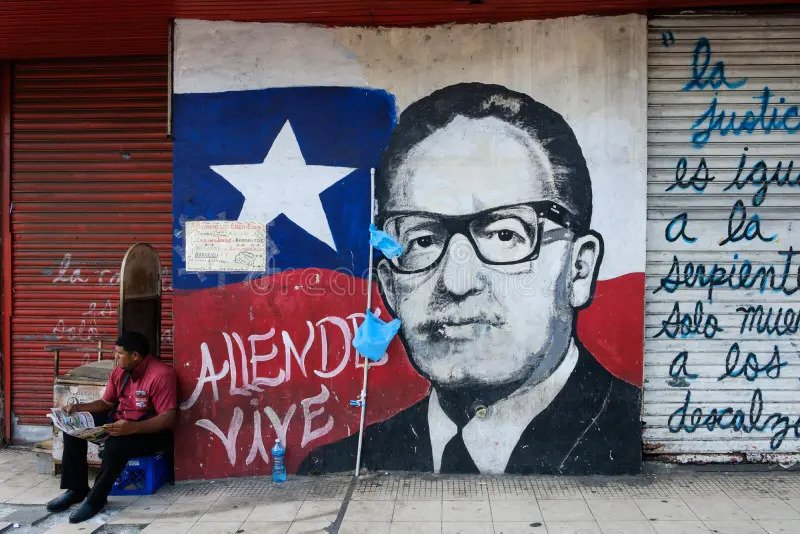We reflect on the 51st anniversary of the 1973 coup in Chile, which toppled the democratically elected socialist government of Salvador Allende and ushered in the brutal dictatorship of Augusto Pinochet. This somber occasion compels us to examine the lasting lessons from Chile’s socialist experience and the ongoing struggles against capitalism, imperialism, and authoritarianism that continue to shape global politics today.
Chile’s historical trajectory, much like many other nations in Latin America, has been defined by centuries of exploitation and colonialism. The oligarchic elite, tightly aligned with foreign imperialist forces, dominated the country through a combination of capitalist and feudal structures. By the mid-20th century, this alliance between capitalist landlords, financiers, and imperialism entrenched a deeply unequal social and economic order.
The rise of Salvador Allende’s Popular Unity government in 1970 marked a significant shift, with a clear mandate to confront these entrenched powers through socialist policies. The nationalization of copper, a key industry controlled by foreign corporations, and land reforms aimed at redistributing wealth to the working class, were hailed as historic achievements. However, Allende’s efforts to implement socialism within the framework of a capitalist-dominated system were met with fierce resistance.

Internal divisions among leftist factions, compounded by external pressures from imperialist forces—most notably the United States—conspired against the government. These challenges ultimately culminated in the military coup that overthrew Allende, extinguishing the hopes of Chile’s socialist transformation. The violent repression that followed under Pinochet’s regime underscored the perils of confronting capitalism without a decisive break from its structures.
The lessons of Chile’s socialist experiment are strikingly relevant in 2023. Across the globe, we continue to witness the devastating effects of neoliberal economic policies, with growing inequality, poverty, and environmental degradation. The inability of leftist governments to fully break from capitalist power structures, whether through internal reformism or external imperialist pressure, has led to political stagnation and, in some cases, the resurgence of far-right movements.
Latin America, Africa, and other regions have repeatedly faced the consequences of imperialist interventions, making Chile’s experience a poignant reminder of the importance of revolutionary change.
The Chilean labor movement’s legacy offers important insights into the role of the working class in driving social transformation. The emergence of workers’ councils and grassroots organizations during Allende’s presidency demonstrated the potential for self-organized, independent action. These movements underscored the necessity of rejecting collaboration with bourgeois forces and uniting under a clear socialist agenda. In 2023, the global left must look to these examples as we navigate similar challenges in our fight against capitalism and imperialism.
Today, the rise of far-right movements across the world, coupled with economic and environmental crises, only reinforces the urgency of a revolutionary socialist movement. The lessons from Allende’s Popular Unity government remind us that parliamentary reform within capitalist frameworks is insufficient for meaningful change. A genuine socialist transformation requires a decisive break from these structures, led by an organized and independent working class committed to dismantling the systems of exploitation and oppression.
As we face the challenges of climate change, economic inequality, and authoritarianism in the 21st century, the need for revolutionary change remains as pressing as ever. The Chilean experience serves as both a cautionary tale and an inspiration for the global socialist movement—a reminder that the fight for a just and equitable world continues, and that true transformation can only be achieved through collective struggle and unwavering commitment to the cause of socialism.
In conclusion, the commemoration of the 1973 coup should not only be a reflection on the past but also a call to action for the present. The lessons of Allende’s government and the Chilean labor movement highlight the importance of revolutionary theory and practice in the ongoing global fight against capitalism and imperialism. As we move forward, the global left must remain steadfast in its pursuit of a socialist future that prioritizes the needs of the working class and marginalized communities over the interests of capital and imperial powers.



